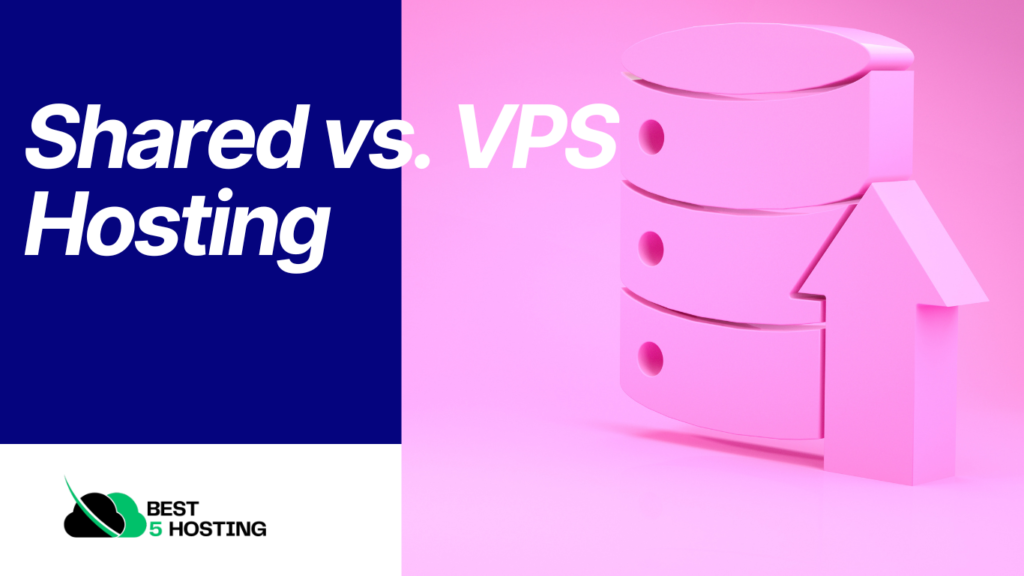Shared vs. VPS Hosting: Pros, Cons, and What’s Right for You?

When it comes to launching a website for your small business, one of the most crucial decisions you’ll face is choosing the right hosting solution. With so many options available, it can be overwhelming to determine the best path forward. Today, we’re diving deep into the pros and cons of shared vs. VPS hosting to help you find the best web hosting services for small business.
Understanding the Basics: Shared vs. VPS Hosting
Before we get into the nitty-gritty, let’s break down what shared and VPS hosting actually mean.
What is Shared Hosting?
Shared hosting is like renting a room in a large apartment building. You share the space—and resources—with other tenants. It’s the most budget-friendly option and is typically ideal for small websites, blogs, or businesses that are just starting out.
What is VPS Hosting?
VPS, or Virtual Private Server hosting, is a step up. Imagine having your own apartment in that same building—you’re still sharing the property, but you have your own dedicated space and resources. VPS hosting gives you more control and stability than shared hosting, making it suitable for growing businesses or those with higher traffic demands.
The Pros of Shared Hosting
1. Cost-Effective Solution
One of the biggest draws of shared hosting is its affordability. Many reputable providers offer plans starting as low as $3 to $10 per month. This low price point is especially appealing for startups or small businesses with limited budgets.
2. User-Friendly
If you’re not particularly tech-savvy, shared hosting can be a blessing. Most providers offer user-friendly control panels and one-click installations for popular content management systems like WordPress. It’s a hassle-free way to get your site up and running without needing extensive technical knowledge.
3. Minimal Maintenance
With shared hosting, the provider takes care of server maintenance, updates, and security. This means you can focus on growing your business rather than getting bogged down with technical issues.
The Cons of Shared Hosting
1. Limited Resources
Since you’re sharing resources with other websites, performance can take a hit during peak times. If one site experiences a surge in traffic, it can slow down all the others on the server. This can lead to frustrating downtime, especially if you’re trying to attract customers.
2. Security Concerns
Shared hosting can pose security risks. If another site on your server gets compromised, your website might be at risk too. Although most hosting providers implement security measures, the risk is inherently higher when sharing a server.
3. Less Control
With shared hosting, you have limited control over server configurations. This can be a downside if you want to install custom software or run specialized applications.
The Pros of VPS Hosting
1. More Resources and Performance
VPS hosting provides dedicated resources, which means better performance and reliability. With your own slice of the server, you can handle higher traffic levels without worrying about slowing down.
2. Enhanced Security
VPS hosting offers better security features than shared hosting. Since you have your own dedicated environment, you can implement specific security measures tailored to your needs. Plus, the isolation from other users reduces the risk of being affected by their vulnerabilities.
3. Greater Control and Customization
With VPS hosting, you have root access, allowing you to configure the server to meet your specific requirements. This is a significant advantage if you have technical expertise or need specialized software.
The Cons of VPS Hosting
1. Higher Cost
While VPS hosting is more powerful, it comes with a higher price tag, usually ranging from $20 to $100 or more per month. This can be a challenge for small businesses that are trying to keep costs down.
2. Requires Technical Knowledge
VPS hosting is not as user-friendly as shared hosting. You’ll need some technical know-how to manage your server effectively. If you’re not comfortable with server management, you may need to hire someone who is, adding to your costs.
3. More Maintenance Responsibility
With greater control comes greater responsibility. You’ll need to take care of software updates, security patches, and backups, which can be time-consuming.
Which Hosting Solution is Right for You?
When it comes down to it, the right choice between shared and VPS hosting depends on your specific needs and budget. Here’s a quick guide to help you decide:
- Choose Shared Hosting if:
- You’re just starting out and have a limited budget.
- Your website doesn’t require a lot of resources.
- You want a hands-off approach to hosting management.
- Choose VPS Hosting if:
- Your business is growing, and you expect higher traffic.
- You need more control over your server environment.
- You’re willing to invest in better performance and security.
Conclusion
In the battle of shared vs. VPS hosting, there’s no one-size-fits-all answer. Each option has its pros and cons, and the best choice depends on your business’s unique needs. For small businesses looking for the best web hosting services, consider your budget, technical expertise, and future growth plans.
Whichever route you choose, make sure to do your research and select a reputable provider that aligns with your goals. Happy hosting!